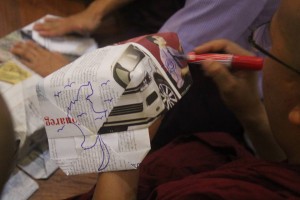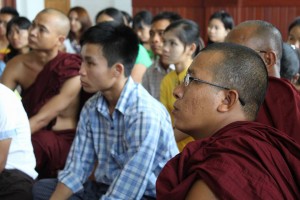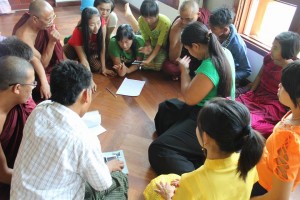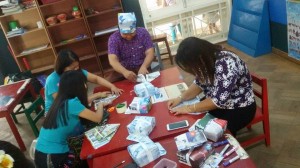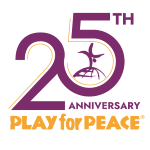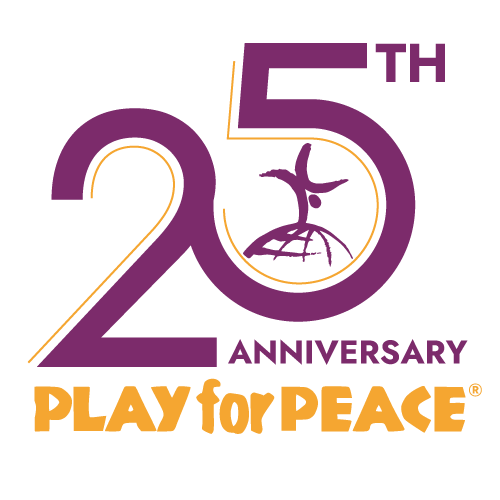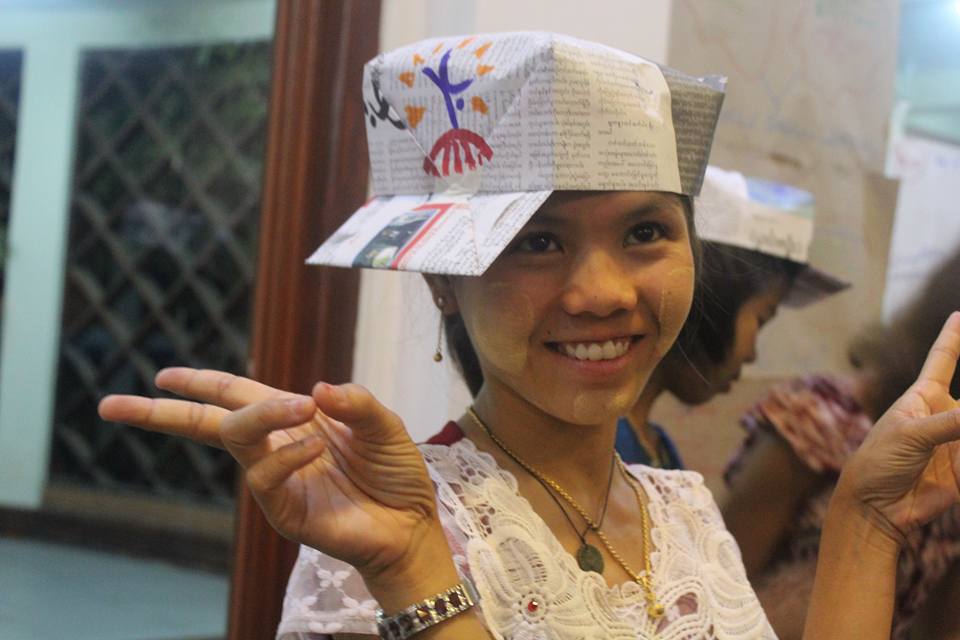The act of looking for a child’s intelligence reduces the marginalization of those who don’t fit the traditional definition of “intelligent”.
The start of Day 3 began with Play for Peace facilitators Swati Bhatt and Agyat Shunya bringing out the alphabet cards. Some of the teacher and educator participants were asked to lay out letters on the floor that spelled words while others had to guess what the words were. While fun, the main emphasis of this game was to teach inclusion by getting everybody involved. After the warmup exercise, the participants reviewed the games that had been taught and played over the past couple of days. They also took turns leading in the games themselves which would enable them to lead their own sessions in their schools and communities.
The next activity was a discussion on intelligence. People normally see themselves and others as either “intelligent” or “not intelligent”. But a measure of intelligence is not that simple. When asked what people were good at, even those who thought that they were “not intelligent” had things that they were good at like cooking, cleaning, sports, singing, weight lifting, and more. Swati and Agyat showed the participants a list of 8 different kinds of intelligences and asked each participant to identify which ones each possessed. Even the “uneducated farmer” had 2 or 3 forms of intelligence. The exercise prompted a discussion on children who the participants found difficult and each was asked to discuss what intelligence the “difficult child” may possess. Not surprisingly every “problematic” child had at least one strength. One teacher recalled the story of a child who used to be a bully and was poor in math and languages but performed very well when allowed to act.
The act of looking for a child’s intelligence reduces the marginalization of those who don’t fit the traditional definition of “intelligent”. It allows everyone to appreciate an individual for their strengths and a path to improve on their weaknesses. After a few more games and practice sessions the participants had an opportunity to plan their practice peace sessions that they would hold the following day with a group of children. This gave them a sense of what it takes to plan their sessions as well as an opportunity to exercise creativity by changing the games to suit the needs of the children. Stay tuned for pictures from the first session with children from Yangon…. 